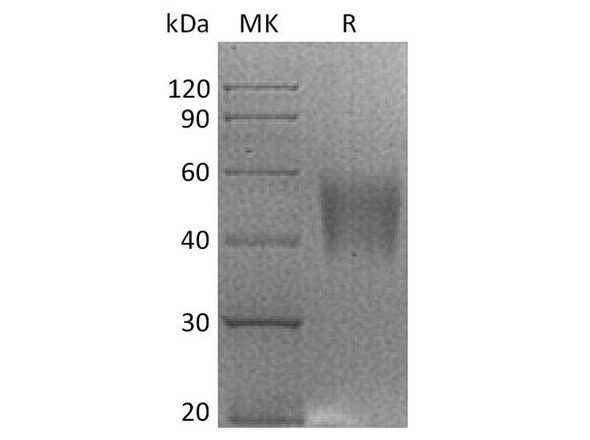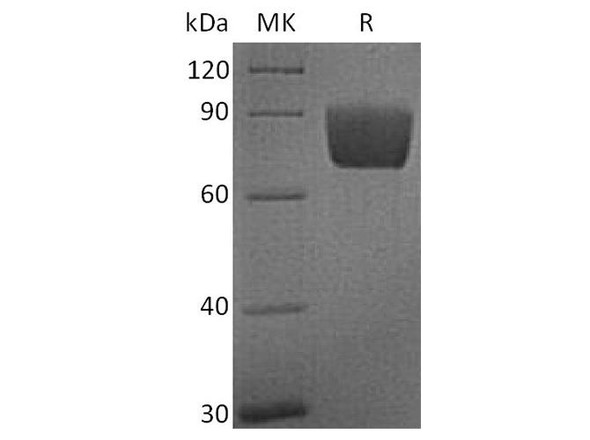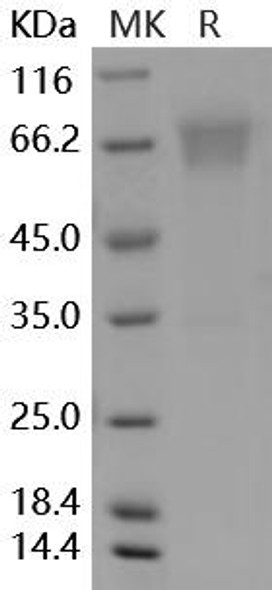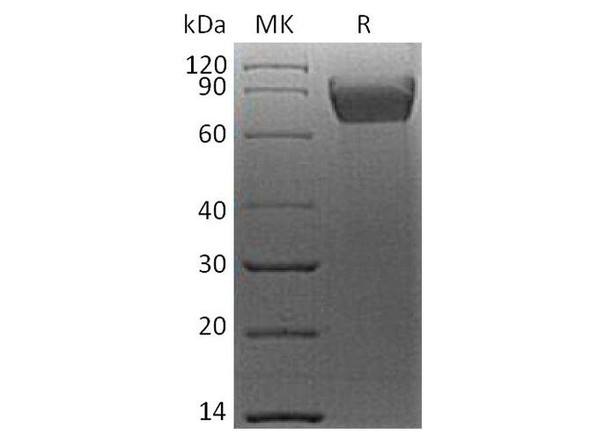Rhesus macaque B7-H4/VTCN1 Recombinant Protein (Fc Tag)
- SKU:
- RPES5929
- Product Type:
- Recombinant Protein
- Species:
- Monkey
Frequently bought together:
Description
| Product Name: | Rhesus macaque B7-H4/VTCN1 Recombinant Protein (Fc Tag) |
| Product Code: | RPES5929 |
| Size: | 20µg |
| Species: | Rhesus macaque |
| Expression Host: | HEK293 Cells |
| Synonyms: | B7S1, B7x, Vtcn1, B7h.5, B7-H4, B7H4T-cell costimulatory molecule B7x, B7S1VCTN1, B7XPRO1291, FLJ22418, Immune costimulatory protein B7-H4, Protein B7S1, T cell costimulatory molecule B7x, V-set domain containing T cell activation inhibitor 1, V-set domain-containing T-cell activation inhibitor 1 |
| Mol Mass: | 52.5 kDa |
| AP Mol Mass: | 70-100 kDa |
| Tag: | C-hFc |
| Purity: | > 95 % as determined by reducing SDS-PAGE. |
| Endotoxin Level: | < 1.0 EU per μg of the protein as determined by the LAL method. |
| Bio Activity: | Testing in progress |
| Sequence: | Phe29-Ala258 |
| Accession: | F7B770 |
| Storage: | Generally, lyophilized proteins are stable for up to 12 months when stored at -20 to -80°C. Reconstituted protein solution can be stored at 4-8°C for 2-7 days. Aliquots of reconstituted samples are stable at < -20°C for 3 months. |
| Shipping: | This product is provided as lyophilized powder which is shipped with ice packs. |
| Formulation: | Lyophilized from sterile PBS, pH 7.4. Normally 5 % - 8 % trehalose, mannitol and 0.01% Tween80 are added as protectants before lyophilization. Please refer to the specific buffer information in the printed manual. |
| Reconstitution: | Please refer to the printed manual for detailed information. |
| Background: | B7 Homolog 4 (B7-H4) is glycosylated member of the B7 family of immune costimulatory proteins.It is widely expressed, including in kidney, liver, lung, pancreas, placenta, prostate, spleen, testis and thymus. B7-H4 negatively regulates T-cell-mediated immune response by inhibiting T-cell activation, proliferation, cytokine production and development of cytotoxicity. When expressed on the cell surface of tumor macrophages, plays an important role, together with regulatory T-cells (Treg), in the suppression of tumor-associated antigen-specific T-cell immunity. It also involved in promoting epithelial cell transformation. |










